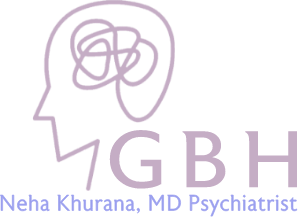
- November 5, 2025
Situational Depression vs Clinical Depression: Key Differences Explained
Feeling overwhelmed or emotionally low after a significant life event is a common experience. Understanding how real-life events can trigger situational depression is crucial for recognizing and addressing it early. This blog will cover the critical distinctions between situational depression and clinical depression, helping you navigate through emotional complexities caused by depression and mood disorders alike.
What Is Situational Depression?
Situational depression, also known as adjustment disorder with depressed mood, is a form of short-term depression triggered by stressful life events. Unlike clinical depression, it usually ties to specific circumstances such as loss, trauma, or change. Anyone can experience this, regardless of age or background.
Common Causes of Situational Depression
- Death of a loved one
- Divorce or breakup
- Job loss or career change
- Financial stress
- Diagnosis of chronic illness (self or loved one)
- Natural disaster or trauma
- Moving to a new city or environment
- Postpartum changes (can overlap)
- Caregiver stress
One Conversation Can Change Everything! Consult Dr. Neha Khurana for Personalized Depression Care
Symptoms of Situational Depression
Identifying symptoms early is crucial. Common symptoms include:
- Persistent sadness or tearfulness
- Feeling hopeless or helpless
- Fatigue and low energy
- Irritability or anger
- Trouble sleeping or oversleeping
- Changes in appetite
- Difficulty concentrating
- Social withdrawal
- Low self-esteem or guilt
- Physical complaints like headaches or stomach pain
Situational vs Clinical Depression: What’s the Difference?
| Feature | Situational Depression | Clinical Depression |
| Cause | Triggered by a specific event | May have no clear cause |
| Duration | Usually short-term | Often long-lasting |
| Intensity | Mild to moderate | Can be severe |
| Diagnosis | Adjustment disorder | Major depressive disorder |
| Treatment | Supportive therapy, coping skills | May need medication + therapy |
How Long Does Situational Depression Last?
Typically, situational depression lasts less than 6 months and may resolve once the triggering situation improves. However, it can become chronic if unaddressed. Early support can significantly reduce duration and severity. Our psychiatric care services can offer the necessary support.
Can Situational Depression Become Major Depression?
In some individuals, yes—especially if:
- The stressor persists or worsens
- There’s a history of mental health issues
- There’s a lack of social or emotional support
Thus, early intervention is important. For cases like these, explore options such as TMS Therapy.
How to Deal with Situational Depression
Self-Care Strategies:
- Talk to trusted friends or family
- Journaling or expressive writing
- Regular physical activity
- Adequate sleep and nutrition
- Limit alcohol and caffeine
- Mindfulness, meditation, or breathing exercises
Professional Help:
- Cognitive Behavioral Therapy (CBT)
- Support groups or grief counseling
- Short-term antidepressants (if recommended)
- Working with a primary care doctor or mental health professional
One Conversation Can Change Everything! Consult Dr. Neha Khurana for Personalized Depression Care
When to Seek Help
Seek help if:
- Symptoms last longer than 2 weeks
- It interferes with work, relationships, or daily life
- If you have thoughts of self-harm or suicide
- If sadness doesn’t lift even after resolving the stressor
Mental health is just as important as physical health. Explore our services for comprehensive care options.
How Georgia Behavioral Health Can Help?
Our mental health clinic offers compassionate evaluation of emotional symptoms, diagnosis of adjustment disorders or depression, and individual or family counseling options. We provide mental health screenings and medication management, ensuring integrated care for both mental and physical well-being.
Conclusion
Situational depression is a real and valid emotional response to life stress. With the right support and tools, it can be managed and overcome. If you’re struggling emotionally after a major life event, you’re not alone. Reach out to our clinic—we’re here to listen, support, and help you heal.
FAQs
What is situational depression?
It’s a short-term form of depression developed in response to a major life stressor like loss, trauma, or change. It’s also called adjustment disorder with depressed mood.
How long does situational depression last?
It usually lasts less than 6 months and may improve as the situation resolves or with support.
Can situational depression lead to major depression?
Yes, especially if the stressor continues, or there’s a personal or family history of mental illness.
How do you treat situational depression?
Treatment includes therapy, self-care, lifestyle changes, and sometimes medication.
Is situational depression a real diagnosis?
Yes, it’s recognized as an adjustment disorder by mental health professionals.
